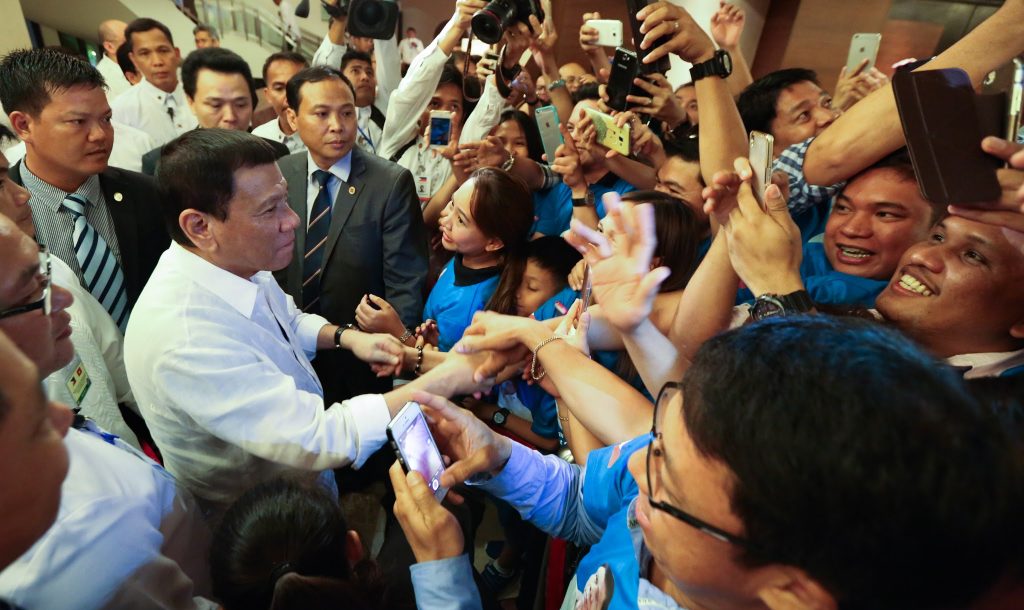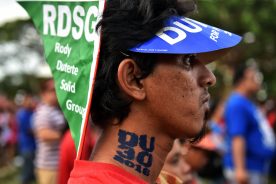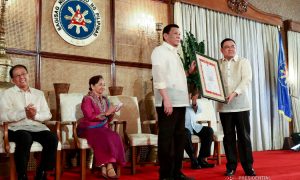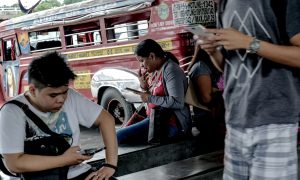“We are relying so much on science instead of relying on what we see, the real experience that we encounter in our daily lives.”
This was how House Majority Leader Fredenil Castro defended the bill amending the Juvenile Justice and Welfare Act of 2006. Passed on 21 January 2019, the bill would send a nine-year-old who broke the law to an “intervention program unless the child acted with discernment,” in which case, a heavier penalty would be imposed.
Civil society organisations and children’s rights advocates, including the Philippine Pediatric Society, criticised the bill for its poor grounding on scientific evidence, among other reasons.
Congressman Castro’s false dichotomy alerts us to the centrality of “non-scientific” reasoning in Philippine policy-making. This, I argue, belongs to a broader culture of anti-intellectualism and smart-shaming.
This does not bode well for liberal democracy, which upholds Reason and Science and relies on data-driven policies and informed debates. But how can rationality thrive in an unscientific environment?
Engaging anti-intellectualism
If liberal reason is to blossom fully, it has to do so in an inhospitable terrain. Its seeds must be planted in ways that accord with soil type, topography, and climate; i.e. the material conditions of Philippine society.
Liberal democratic practice must first change the terms of engagement with anti-intellectualism. To dismiss it as sheer irrationality plays into the anti-elitism of populist politics. Painting your adversary as fanatical proves your rationality, but it also means you find them unintelligible. How can you overcome an adversary that you do not understand?
By engaging the social and class origins of anti-intellectualism, we recognise its intelligibility and are thus in a better position to do something about it. Given deep inequalities in the Philippines, education is, amongst other things, a mark of power and social class. In this respect, smart-shaming figures in class antagonism and works à la James Scott’s weapons of the weak: it mocks the educated and powerful. It also projects a communalism and solidarity absent in a class-divided society.
The limits of rational politics
Smart-shaming and anti-intellectualism cannot be resolved just by putting out facts, correcting errors, or insisting on the values of logic and science. The solution also involves transforming class relations, addressing perceptions of elitism and rebuilding public trust in the media and the academe. Social inequalities must be bridged, and access to quality education has to improve. Universities should enlarge their social media presence and strengthen efforts to popularise research and the scientific method. After all, rationality is as much a mental practice as a way of life.
In the United States, Adam Waters and E.J. Dionne write that “the intellectual process itself [must] be transformed through genuine cross-class alliances” and participation in social movements and everyday struggles. In the Philippines, this engagement can build solidarity among progressive elites and the middle class, farmers, workers, and the urban poor. It can go a long way in answering charges of elitist detachment.
Rightly devoted to science and reason, a liberal-rational politics nevertheless overlooks a crucial point: people do not live on Reason, Science, and Facts alone, but on art, emotions, language, values, desires, and culture as well. Not that the latter are irrational, but they are irreducible to a technocratic, scientific rationality, and often given the slip. “All kinds of things,”Sophia Rosenfeld explains, “are built into what looks like a fact,” such as values, norms, and interpretations.
Rethinking culture and politics
References to culture, psychology, language, emotion, folk literature, humour, religion, media, and sexuality pervade much of the commentary on President Duterte. “Cebuano culture,” fun, honesty, and authenticity have all been deployed to defend his offensive remarks. For others, he is a “consummate storyteller,” an “authoritarian trickster,” and “a practiced comedian.” He is the “walking, talking id” of Filipinos; his populism taps into “latent anxieties,” and builds on a “politics of hope.” The agent of God’s justice on earth, he is the incarnation of the Filipino action hero and the embodiment of Southeast Asia’s orang besar or “big man”.
The fact that President Duterte is discussed in sociocultural terms—alongside modern theories of populism, democracy, and authoritarianism—represents the need to explain his popularity beyond rational standards. It also reflects how the president, and his populist politics, embodies and enacts the Philippines’ many divisions and contradictions. It indicates how he has confounded liberalism’s sense of a rational, well-structured order. This explains his trickster status and turns him into a quasi-transgressive force that appeals to a public starved for change.
Populism has deployed a potent confluence of culture, language, sexuality, and psychology that “messes up” the rationality of liberal democracy. This has been rightly decried by its advocates. For them, the values of Philippine populism are backward, feudal, vulgar, primitive, fascist, or illogical. Kinship (Duterte as a father figure), utang na loob (debt of gratitude), loyalty, personal ties, care, courage, emotions, humour, entertainment, and religion have little to do with “serious” politics, let alone the liberal democratic kind.
Appropriations, or What is to be Done
This view is no longer tenable. If it is to succeed, rational-scientific politics must incorporate “backward,” “irrational,” and “feudal” elements as part of a revitalised democratic order.
This process is akin to the development of aesthetics in 18th-century Germany. It arose as Enlightenment Reason’s attempt to map “what Kant called the ‘rabble’ of the senses” (aisthesis in Greek) and later on, to lend some life to the “progressively abstract, technical nature of modern European thought.”
Love, family, religion, social media, popular culture, and emotions do figure in backward, non-democratic politics, but they are also the stuff of values, dreams, and everyday life. To abandon them for “higher and more rational” standards is to surrender our stakes in the only terrain of struggle. If liberal democratic thought underestimates their role in politics, or if it consigns them to the private sphere, others will exploit them for politically nefarious ends.
Engaging populism entails the creative re-appropriation of everyday phenomena for science, reason, human rights, social justice, and democracy. It’s about embracing the mundane and embedding these commitments therein. It means beating populists at their own game, and much else besides.
Feminists like Virginia Held show that a just social order can be based on care, kinship, and personal ties, which do not necessarily play into, say, patronage politics, and do not automatically come into conflict with public interests.
Emotions likewise get short shrift, not least when it comes to describing the cult-like fanaticism of some pro-Duterte supporters. But as Martha Nussbaum points out, “the question is not whether politicians should appeal to emotions, but which emotions, and when, and in connection with which arguments.”
Social media sent Duterte to Malacañang, but this should not keep progressives from deploying it for their own purposes. Alexandria Ocasio-Cortez inspires in this respect, as does the work of An Xiao Mina on memes and political movements. If pro-Duterte supporters are social-media savvy, so too should be the advocates of liberal democracy.
Similarly, critics bemoan the reduction of politics to spectacle, entertainment, and popularity contests. But this is more, not less, reason to mobilise mass media for progressive politics. Otherwise, how can democratic principles resonate with the Filipino people? Why be serious when liberals should be fun, charming, and entertaining? With the coming elections, they can’t afford not to be.
Did Duterte change the rules of Philippine elections?
Dutertismo still hasn’t fundamentally changed how political power is sought and won.
A new hope
Will these engagements succeed? It’s hard to say because they touch upon the ambiguous role of culture, humour, desire, psychology and the like in politics. These matters have always been political, but what exactly should their role be in, and their distance from, the scientific rationality of liberal democracy?
Whatever the case, Filipino values, psychology, philosophy, religion, folklore, gender, ethics, popular culture, and identity—and the considerable scholarship on these subjects—deserve a second look. As bearers of norms and assumptions about politics, governance, morality, and social relations, they can serve as a fount of resources that can humble, ground, and advance liberal democratic practice in the Philippines.
As Marx was with communism, I cannot yet see what a revitalised liberal democracy will look like. Maybe it will be solemn but fun, social media-savvy yet troll-free, religious but secular, rational yet sentimental, high-minded but grounded, caring and personalistic, yet selfless and free of patronage. One thing’s for sure: it will be safe, drug-free, and clean. Without dead bodies.
I am getting ahead of myself, though. For now, may the odds be ever in our favour.
 Facebook
Facebook  Twitter
Twitter  Soundcloud
Soundcloud  Youtube
Youtube  Rss
Rss 



